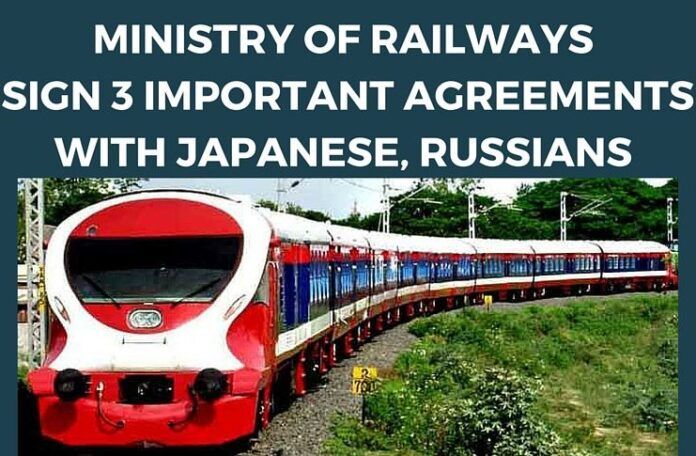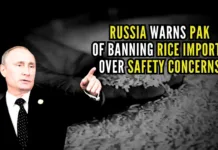
Ministry of Railways signed a Memorandum of Cooperation (MoC) with Japan and Russia for technical cooperation in the railways, satellite and geo-information technologies among others.
[dropcap color=”#008040″ boxed=”yes” boxed_radius=”8px” class=”” id=””]T[/dropcap]he union cabinet was apprised of three important technological cooperation agreements Indian Railways inked with Japan and Russia in December 2015 on Wednesday.
Ministry of Railways (MoR) signed a Memorandum of Cooperation (MoC) with Japan’s Ministry of Land, Infrastructure, Transport and Tourism (MLIT) for technical cooperation in the railways On December 11, 2015.
Indian Railways’ Research Design and Standards Organisation (RDSO) also inked an MoU with Japanese Railway Technical Research Institute (RTRI) on the same day.
While MoR and Joint Stock Company “Russian Railways” signed an MoU on December 24, 2015.
[dropcap color=”#008040″ boxed=”yes” boxed_radius=”8px” class=”” id=””]”T[/dropcap]he MoUs provide a platform for Indian Railways to interact and share the latest developments and knowledge in the railway sector. The MoUs facilitate exchange of technical experts, reports and technical documents, training and seminars/workshops focusing on specific technology areas and other interactions for knowledge sharing,” said an official statement.
The MoC with MLIT enables technical cooperation in railway safety, rolling stock including train set, railway electrification, train control system and signalling and telecommunication among others.
And the MoU with Russian Railways covers High Speed Rail (HSR) in India and satellite and geo-information technologies among others.
While the MoU with RTRI encompasses safety in train operation, advanced techniques of maintenance, environment friendly technologies, throughput enhancement measures and others.
All the agreements are valid for three years including extensions for another two years as well.
Indian Railways
Here is an excellent post on A Batch Of ‘Aircraft-Like’ Coaches For Indian Railways
Notes:
1. IANS
- Pentagon cancels aid to Pakistan over record on militants - September 2, 2018
- The curious case of Tamil Nadu’s opposition to NEET - September 4, 2017
- If 2.6 Billion People Go To War: India vs. China - July 22, 2017










